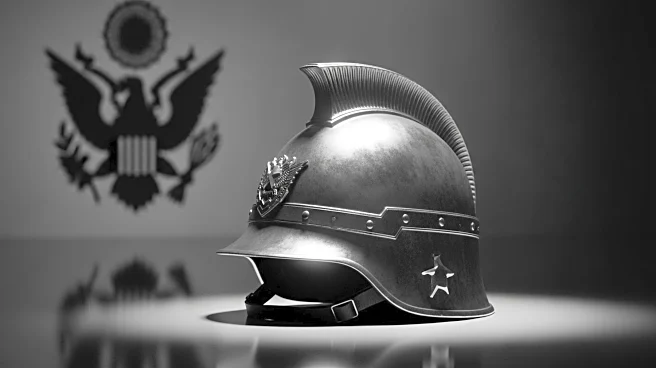What is the story about?
What's Happening?
Defense Secretary Pete Hegseth has announced a return to 'highest male standards' for military combat roles, sparking backlash from female veterans. Hegseth argues that previous adjustments to standards to accommodate women have compromised military effectiveness. His directive aims to revert to pre-2015 standards, potentially excluding women from certain combat roles. Female veterans, including Elisa Cardnell and Amy McGrath, have criticized the move, stating that standards have always been gender-neutral and high. The directive has raised concerns about its impact on women's advancement in the military and recruitment efforts.
Why It's Important?
Hegseth's directive could have significant implications for gender equality in the military. By potentially excluding women from combat roles, the directive may limit career advancement opportunities for female service members and undermine efforts to diversify military leadership. The move could also affect recruitment, as it may discourage women from joining the armed forces. The debate highlights ongoing tensions between maintaining rigorous military standards and promoting gender equality. The outcome of this policy change could influence future military recruitment and retention strategies.
What's Next?
The directive may lead to further discussions and potential legal challenges regarding gender equality in the military. Advocacy groups and lawmakers who support gender diversity may push for a review or reversal of the policy. The Pentagon's response to these concerns will be closely watched, as it could set a precedent for future military policies. Additionally, the impact on recruitment and retention of female service members will be monitored to assess the long-term effects of the directive.
Beyond the Headlines
The directive raises broader questions about the role of gender in military standards and the balance between maintaining operational effectiveness and promoting diversity. It also highlights the cultural and institutional challenges women face in traditionally male-dominated fields. The policy change could influence public perceptions of the military and its commitment to gender equality, potentially affecting its reputation and recruitment efforts.
















